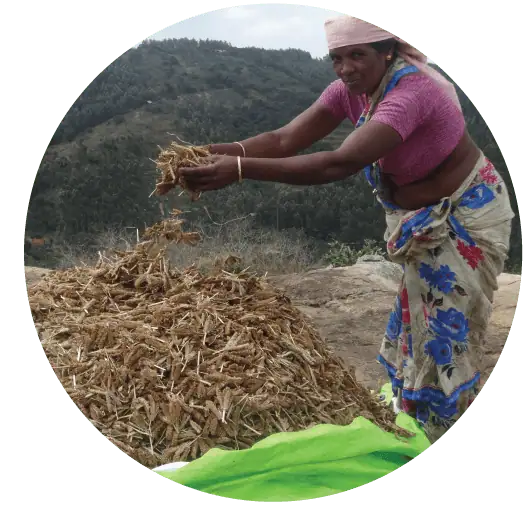Climate Resilience
Home > Our Work > Programme Areas > Climate Resilience
PLACEHOLDER CONTENT
Climate Change: Mitigation, Adaptation and the Path to Resilience
The Climate Change Programme undertakes policy and research work on various aspects of climate change, alongside its crosscutting thematic role across all programme areas. With a strong interdisciplinary focus and guided by a commitment to equity and climate justice, the programme generates knowledge and policy outputs aimed at policy influencers and policymakers at the State and Central government levels, while leveraging the field experience and knowledge generation for this purpose.
THEMATIC AREA OBJECTIVE
- Foregrounding equity and justice in climate policy and action at the global, national, and regional levels
- Climate change impacts and links between development and adaptation
- Climate change impacts on agriculture and adaptation solutions
- Methodological innovation, including the leveraging of new techniques in climate adaptation research
- Policy and scientific support for all stakeholders, including Government of India on global policymaking at multilateral forums such as the Intergovernmental Panel on Climate Change (IPCC), United Nations Framework Convention on Climate Change (UNFCCC), and other related bodies.
KEY RESEARCH AND ACTION UNDERTAKEN, OUTPUTS AND KEY RESULTS
Equity Assessment of Global Mitigation Pathways
The Sixth Assessment Report (AR6) of the IPCC relies heavily on modelled global mitigation pathways (or scenarios) based on the use of Integrated Assessment Models (IAMs). These scenarios claim to explore the potential and/or required changes in socio economic, technological, and energy-related variables to meet appropriate global warming temperature targets.
However, it is important to assess how these scenarios incorporate the foundational principles of the UNFCCC, namely equity and the principle of common but differentiated responsibilities and respective capabilities (CBDR&RC) for these scenarios to be relevant to the climate negotiations under the Convention. But such an assessment of how these scenarios fare on considerations of equity and CBDR&RC, is completely absent from the IPCC AR6 reports, especially in the report of Working Group-III as well as the Synthesis Report. This study fills this critical gap by assessing the equity implications of 556 scenarios used by the IPCC.
Google AI for Social Good
This study uses advanced Artificial Intelligence and Machine Learning techniques, including convolutional neural networks (CNNs) and similar models, to interpret high-resolution satellite imagery. The goal is to precisely identify crucial crop attributes from existing satellite images and evaluate the potential impact of increased aridity on paddy cultivation in the Cauvery Delta.
FUTURE PLANS / WAY FORWARD
Research and policy engagement with a focus on foregrounding equity in national and international climate policy will be actively pursued. In particular, the following topics will be among the key areas of engagement:









